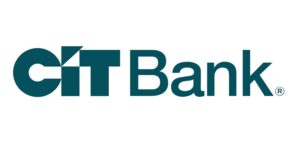
Founded in 2012, CommonBond was created to help relieve students of financial burden. Since then, the company has funded $3 billion student loans through lower rates, simpler options, and a world class experience The company offers refinancing for federal, private, Parent PLUS and previously consolidated loans.
In this guide, we’ll break down CommonBond’s services, so you can decide if they’re the right lender for you.
CommonBond In A Nutshell
| Loan Terms | 5, 7, 10, 15 or 20 years |
| Loan Amounts | $5,000 to $500,000 |
| Loan Types | Variable, fixed, hybrid |
| Cosigner | Yes |
| Autopay Discount | 0.25% |
CommonBond Features
CommonBond offers customizable student loan refinance terms with fixed, variable and hybrid rates. There is a 10-year repayment term with hybrid loans where the interest rate is fixed for the first five years, then variable for the last five.
Borrower Protections
All borrowers are covered with:
- In-school forbearance
- Military forbearance
- Internship, residency or fellowship forbearance
- Death or disability discharge
CommonBond allows a longer forbearance time than most lenders. You can take a total of 24 months of forbearance, maximum three months at a time, over the life of your loan.
PLUS Loan Features
If you’re a parent with PLUS loans, you can apply to refinance with CommonBond for a lower interest rate. In addition, the lender provides you the option to transfer your PLUS loan to your child after they graduate.
CommonBridge
As a way to assist borrowers who have lost their jobs, CommonBond offers a program called CommonBridge which helps them find new jobs. This feature is exclusive to CommonBond and not typically seen with other lenders.
Social Promise
CommonBond has a social promise to cover the cost of a child’s education in a developing area when you choose to refinance your student loans with the company. The lend has a partnership with Pencils of Promise and has provided schools, teachers, and technology to thousands of young students in Ghana.
CommonBond Rates & Fees
Interest rates on CommonBond are determined by various factors, including you or your cosigner’s credit history, your debt-to-income ratio, the type of loan you’re applying for and current market interest rates.
| Application Fee | None |
| Origination Fee | None |
| Prepayment Penalty Fee | None |
| Late Payment Fee | 5% or $10, whichever is less |
CommonBond Requirements
To qualify for student loan refinancing with CommonBond, you must:
- Be a United States citizen, permanent resident or H1-B, J-1, L-1, E-2 or E-3 visa holder.
- Have graduated from a selection of more than 2,000 Title IV accredited university or graduate program.
Unfortunately, CommonBond’s services will not be available to you if you live in Mississippi, Nevada or Vermont. CommonBond’s services are available to those in any other U.S. states as well as the District of Columbia.
 |
 |
Bottom Line
Before you decide on CommonBond, make sure to consider all other options and compare rates and terms from other lenders to best suit your needs. Alternatives include Discover and Laurel Road.For more ways to save more, check out our post on how save money online and bank guides here on HMB!
(Click the link to learn more at CommonBond)




Leave a Reply